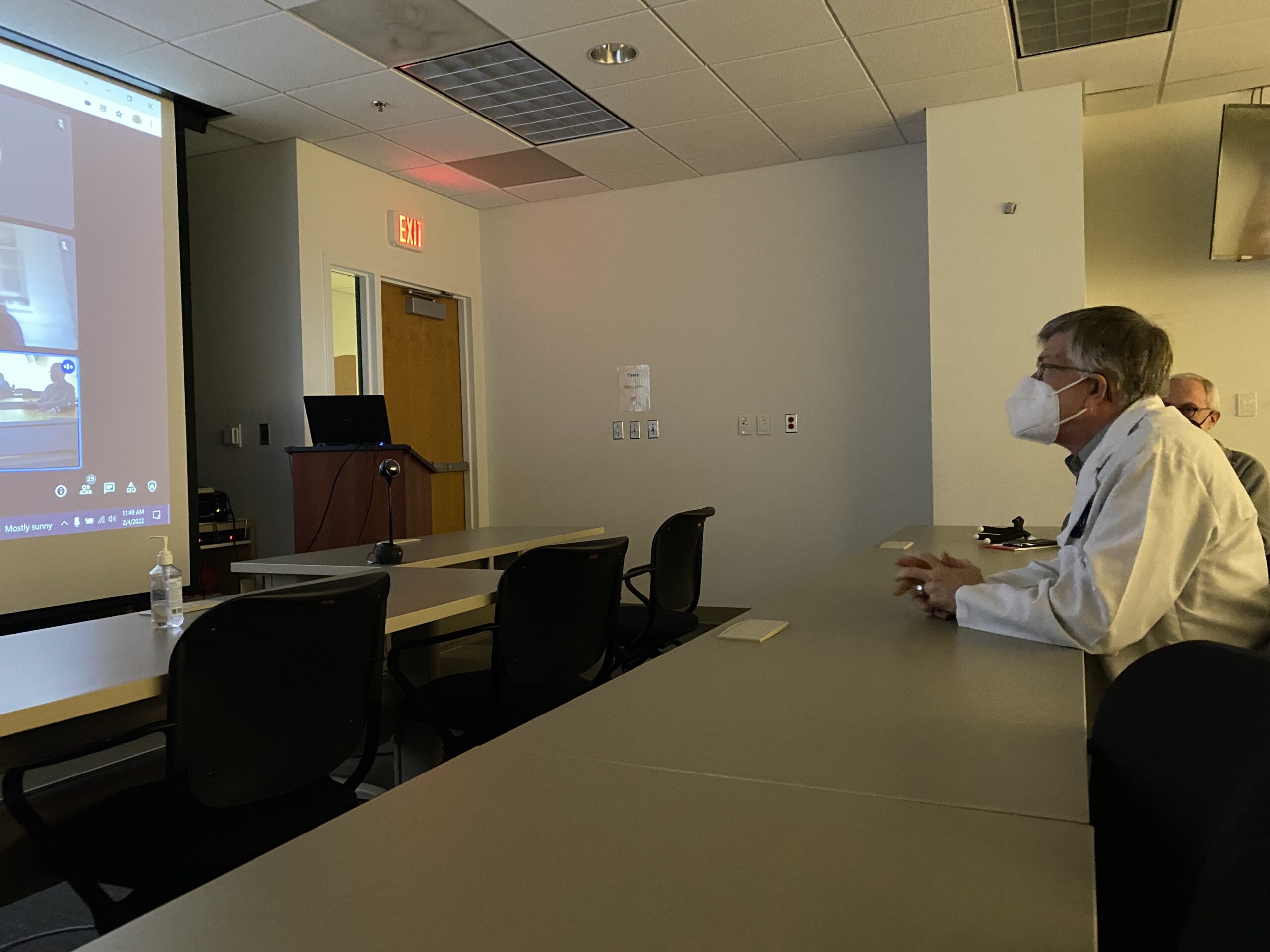Maryland Office of the Chief Medical Examiner Reaches Out to FEMA For Help with Autopsy Backlog

The backlog of decedents to be autopsied at the Office of the Chief Medical Examiner has grown so vast that the agency reached out to the Federal Emergency Management Agency for assistance Friday morning.
According to Chief Medical Examiner Dr. Victor Weedn, the office currently has 217 decedents ready for autopsy, 18 of which will be completed Friday.
“The oldest case for us to still do is about two weeks old,” he told members of the Postmortem Examiners Commission at a meeting Friday morning.
“We anticipate to have 300 cases by February 16,” Weedn said.
The Office of the Chief Medical Examiner reached out to FEMA for support from its Disaster Mortuary Operational Response Teams, which are typically used to assist state and local governments after natural disasters, terrorist attacks, transportation accidents and pandemics.
Even though the Office of the Chief Medical Examiner made a request for services, “that doesn’t mean they’ll say yes,” Weedn said. “I need to make that clear.”
According to Weedn, the agency began having trouble keeping pace in December, when it went from zero cases held over for examination to 50 cases in 11 days.
The problem has worsened from there: the backlog of 50 cases on Dec. 21 grew to over 100 cases by Jan. 13. Just eight days later, the backlog was up to over 150. By February’s start, the office of the Chief Medical Examiner was up to approximately 200 decedents waiting to be autopsied.
Weedn pointed to staffing problems as a major reason for the backlog: as of Friday, the Office of the Chief Medical Examiner had 10 assistant medical examiners on staff to complete autopsies — but only eight were available to work.
“Whereas last year, at this time, we had 14 assistant medical examiners,” 11 who were available to work, he said.
Weedn told commissioners that, “if you don’t look at forensic pathology,” the office has had “about a 50% turnover” across its entire staff.
There are currently six vacancies in the agency’s investigative team.
“We’re having county [forensic investigators] come in to fill our own desks here at the office,” he said. “We have times where there is nobody manning the the telephone because they’re out on scenes and they’re not there to answer the phone. This is not a good situation.”
Asked about the high turnover rate, Weedn said the answer is “very clear.”
“All the exit interviews say that their pay is too low,” he said. “We have asked for raises both in investigation and toxicology. We’ve lost our toxicologists to other state toxicology positions. They’ve gone up in [pay] grades and do less work.”
Dr. Jinlene Chan, the Deputy Secretary of Public Health Services for the Department of Health, said that the state has opened an additional 21 positions within the office “along with the budget that goes with it.”
Chan, who sits on the commission, said that not all of those positions are for assistant medical examiners or forensic pathologists. Some are to support other staff within the office who are also struggling to keep up.
“Now, I will say that providing positions does not mean that there are people in those positions yet to do the work,” she said.
There is a national shortage of medical examiners.
Del. Kirill Reznik (D-Montgomery), the Chair of the House Appropriations Committee’s Health and Social Services Subcommittee, said during a phone interview Friday afternoon that the office has been “steadily losing people in our office to … other medical examiner offices and other jurisdictions.”
“Clearly we are doing something far worse than other government agencies around the country if we are losing our people to them, and everyone is having this problem,” Reznik said. “So it’s time we start thinking creatively and it’s time that this office stepped up to the responsibility of hiring the appropriate number of people and stop simply pointing at, ‘Oh, it’s a national problem, there’s nothing we can do.’”
Maryland Matters reached out to the office of Gov. Lawrence J. Hogan Jr. (R) for comment after the meeting, but one was not made immediately available.
Office of the Chief Medical Examiner Faces a Staffing Crisis
Last month, Hogan spokesman Michael Ricci said dealing with the shortage is more complex than other areas, where the state could take action to expedite licenses or bring in retired practitioners. “There are only about 750 pathologists in the country who can perform this kind of work. It is highly specialized,” he wrote late last month.
Weedn said that the office has been augmenting the shortage of in-house forensic pathologists with per diem contractors.
Per diem forensic pathologists earn $850 for each case they take on. “But those per diems [were] doing the work of probably about seven full-time equivalents” in December, Weedn said, “and maybe more than that now that we’re into January.”
Weedn is trying to increase the number of forensic pathologists on staff. He recruited one person who will join the office as a fellow in July, and has four applicants on deck — two of whom won’t be able to come until July.
Additionally, the National Association of Medical Examiners sent Weedn a list of five out-of-state per diem contractors, three of whom have applied for their license to practice in Maryland. He is hoping they’ll be able to practice by late February.
Asked if the additional per diem contractors would help address the backlog, Weedn said a few more workers would help but it could still take months to catch up.
“If we get a lot more than of course it would take less,” he said.
The commission closed the meeting by going into an executive session to discuss “the appointment, employment, assignment promotion, discipline, demotion, compensation, removal, resignation or performance evaluation” of staff at the Office of the Chief Medical Examiner.




 Creative Commons Attribution
Creative Commons Attribution